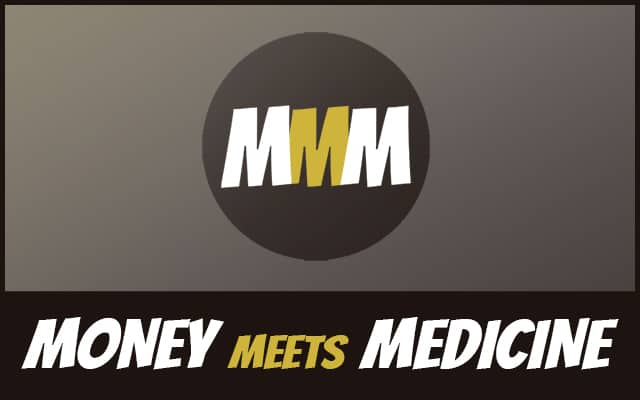Money Meets Medicine Podcast
MMM #1: How Batching Might Save Your Personal Finances
When I tell people that I only spend about 1-2 hours per year on my personal finances tasks, people look at me like I’m crazy. How can someone who reads, writes, and podcasts about money every day… spend only 1-2 hours on their own personal finances? It’s called batching your personal finances.
No, I’m not talking about “Batching It” where you act like a Bachelor for a weekend when your partner leaves. What I am talking about is being able to accomplish twice as much in half the time. If you batch your personal finance tasks together, you can produce the biggest bang for your buck – while also spending the least amount of time taking care of these tasks.
What You’ll Learn – Do You Even Batch?
 What will you learn in the “Do You Even Batch Episode?” All of the following, and much more:
What will you learn in the “Do You Even Batch Episode?” All of the following, and much more:
- How to separate deep from superficial work – and how this can benefit your financial life.
- The difference between Time-Batching and Time-Blocking.
- Why it is important to create an automatic financial plan.
- The difference between a Maker’s Day and a Manager’s Day.
- Listeners will find out that I have superpowers, too.
Resources from the Episode:
- The Four Hour Work Week by Tim Ferriss
- Physician Zen – Ultimate Secret to Productivity – Habit and Task Batching (Step 11 of 12)
- Deep Work: Rules for Focused Success in a Distracted World
- Shaq’s $1 million spending spree in only 30 minutes.
- Maker’s Schedule versus a Manager’s Schedule
- My Book: The Physician Philosopher’s Guide to Personal Finance
This Episode’s Sponsor:
This episode’s sponsor is Larry Keller from Physician Financial Services. If you are in the need for life or disability insurance, don’t hesitate to call Larry. Multiple readers and friends have used Larry, and I’ve never heard a single complaint. I’d recommend him to you highly, and without reservation!
You can find Larry at the Physician Financial Services website; call his cell phone at (516) 677-6211 or by email to [email protected].
Listener Question of the Week:
Each episode, we are going to start including listener questions as they are provided to us. So, if you have a specific question you’d like answered on the podcast reach out to us! Email [email protected] or [email protected]
TPP
You might also be interested in…
Following the Financial Crowd
Have you ever left a sporting event, following the crowd, and suddenly realized you were walking the wrong way? What if I told you this phenomenon has a name, and it impacts your money, too?
Understanding our own behavior when it comes to finance is essential because it helps us mitigate wrong-for-us decision making around money. Unless you know these roadblocks exist, you can’t do much to stop them from derailing your financial goals.
Last week, we shared why human behavior matters for our financial lives by taking a look at the first 5 out of 10 psychological phenomena that can (and do) affect your personal finance goals: greed, fear, ego/overconfidence, loss aversion, and analysis paralysis.
This week, we’re diving back into behavioral finance (one of our favorite topics) to share five more types of unchecked human behavior that can sabotage your journey to building the wealth you want.
Greed, FOMO, and Bad Investments
Despite our best intentions, certain emotions can keep us from building wealth. After many years arming physicians with the information they need to achieve financial wellness, I had a significant realization.
Information is one thing – behavior is another.
As the saying goes, money is 80% behavior and only 20% math.
Not only do I want to share important information about personal finance, I also want to help you recognize how certain behaviors can (and do) affect your finances.
Drawing from one of the classic books about investing, let’s go over five common behaviors that could be keeping you from achieving your financial goals.
How Doctors Can Get Good Financial Advice
Many doctors and high-income professionals hire financial advisors for any number of reasons. Either they’re too busy to handle their finances themselves, they don’t really know how to invest, or they want an expert on their side to make sure they’re on the right track.
So allow me to say from the start: I’m not against financial advisors, but I am against doctors (or anyone, really) being overcharged for bad advice.
There’s no shame in asking for help – you just want to get the help you need at a fair price.
You should be equipped enough to vet and evaluate your financial advisor so you’ll know whether they’re working well on your behalf. How can you be as confident as possible they’re acting in your best interest? This episode will help you find out.
Are you ready to live a life you love?
© 2021 The Physician Philosopher | Website by The Good Alliance





0 Comments